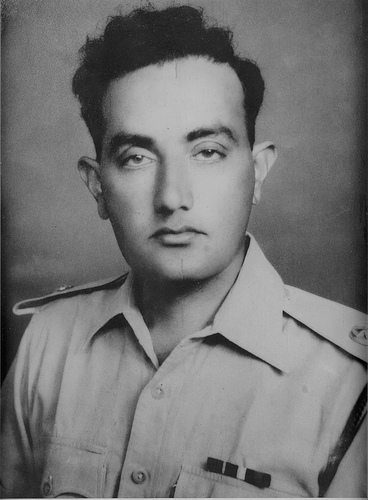In the annals of Pakistan’s military history, few names shine as brightly as Major Raja Aziz Bhatti Shaheed (Nishan e Haider). On a fateful September morning in 1965, as (Enemy tanks moved toward Lahore) and artillery shells lit up the dawn sky, Major Bhatti made a decision that would forever etch his name in the hearts of his countrymen. For six days and nights, he stood resolute at the (BRB Canal), defending Pakistan’s cultural capital with unwavering determination. His story is not just a tale of military valor—it’s a testament to the extraordinary heights of human courage and sacrifice.
| Short | Information |
| / | / |
| Native name | راجہ عزیز بھٹی |
| Real Name | Azizi Ahmed |
| Other Name | Raja Abdul Aziz Bhatti |
| Nick Name | Protector of Lahore / Great Hero |
| Date Of Birth | August 6, 1928 British Hong Kong |
| Died | September 12, 1965 (aged 37) Near Burki, West Pakistan, Pakistan |
| Buried | Ladian, Gujrat District, Punjab, Pakistan |
| Loyalty | Empire of Japan (1944-1945) British India (1946-1947) Pakistan (1947-1965) |
| Service / branch | Imperial Japanese Navy (1944–45) / Royal Indian Air Force (1946–47) / Pakistan Air Force (1947–48) / Pakistan Army (1948–1965) |
| Year of service | 1944–1965 |
| Rank | Major |
| Service number | PA-2695 |
| Unit | (4 16th Punjab Regiment 17th Punjab Regiment) |
| Battles/wars | Indo-Pakistani War of 1965 Battle of Burki |
| Awards | (Nishan-e-Haider) (Pakistan Medal) (Sword of Honor) |
| Relations | (General Raheel Sharif) (Major Shabbir Sharif) |
Major Raja Aziz Bhatti Shaheed Early Life and Background
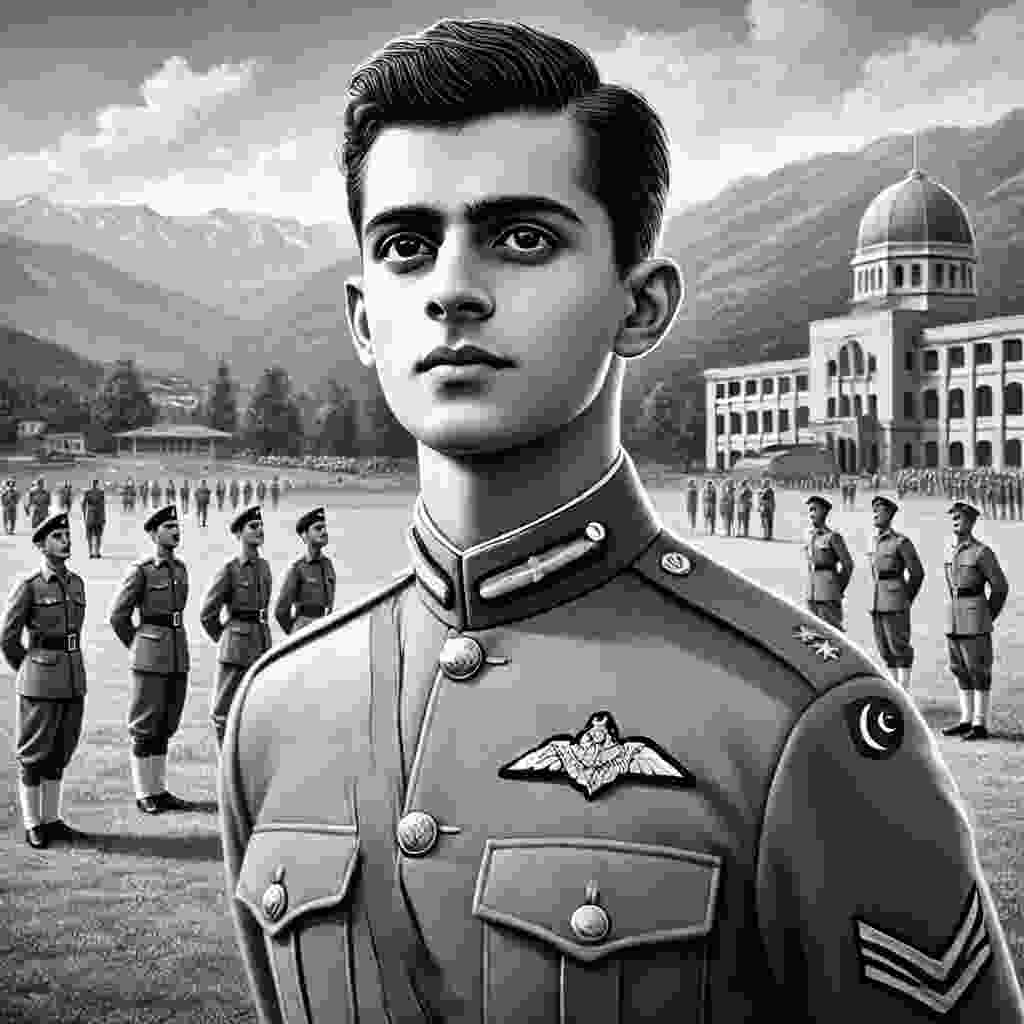
Born in (Hong Kong) in 1928, Raja Aziz Bhatti’s journey to becoming a national hero began far from the borders he would ultimately die defending. Growing up in a middle-class family, young Aziz displayed an early interest in military service, often organizing his schoolmates into mock military formations. After the partition of the subcontinent in 1947, his family migrated to the newly created Pakistan, where their story, like millions of others, became intertwined with the destiny of the nascent nation.
Despite the challenges of settling in a new country, Bhatti’s academic excellence earned him admission to the prestigious (Pakistan Military Academy) (PMA) (Kakul). His instructors remember him as a cadet who combined sharp intellectual capabilities with remarkable physical prowess. During his training, he consistently ranked among the top performers, earning the (Sword of Honor) – a distinction that foreshadowed his future excellence in military service.
Rise Through the Military Ranks

Commissioned in 1950, (Lieutenant) Aziz Bhatti quickly established himself as an officer who led from the front. His early assignments revealed a leadership style marked by personal example rather than mere instruction. Posted to various challenging locations, he earned respect from both superiors and subordinates for his professional competence and unwavering dedication to duty.
By 1965, now a major and serving with the 17th Punjab Regiment, Bhatti had developed a reputation as an officer who could be relied upon in the most demanding situations. This reputation would soon be tested in the crucible of war.
The 1965 War: Defending the Gates of Lahore
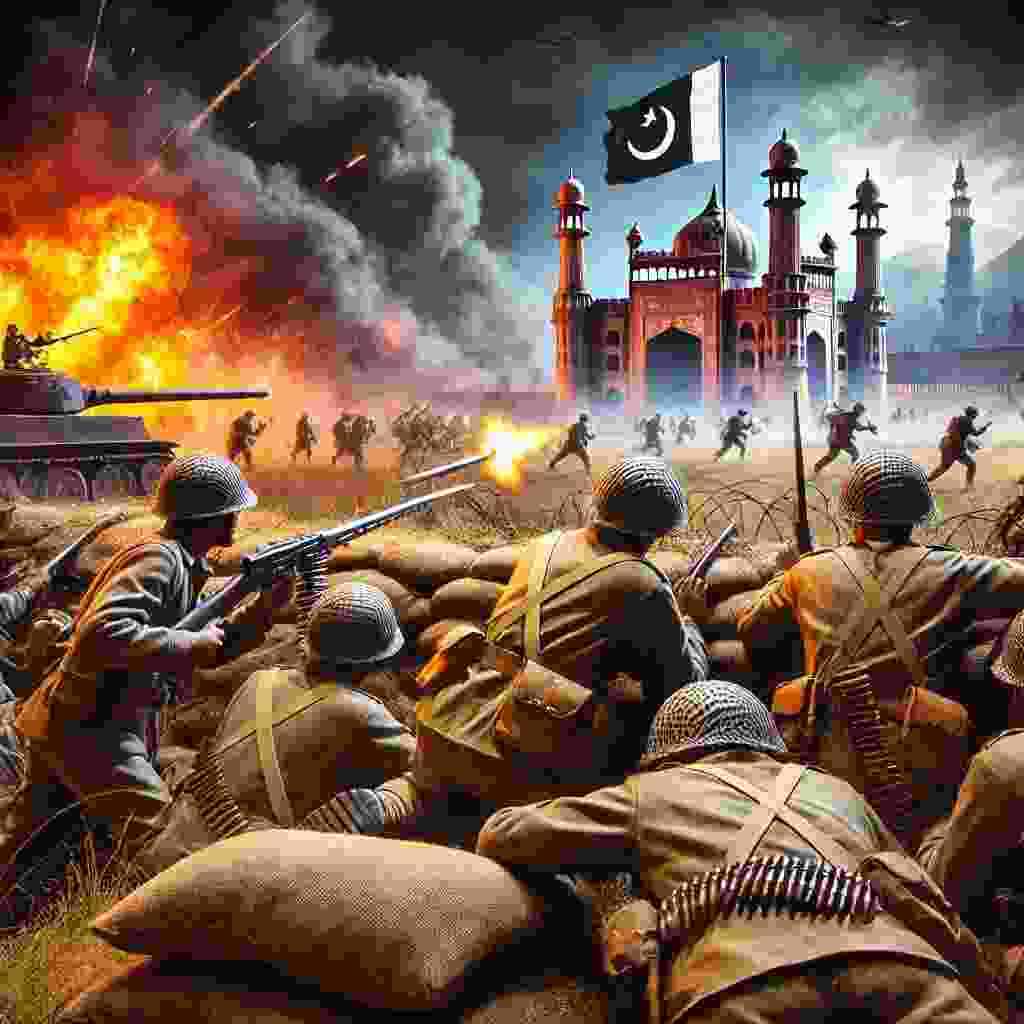
When India launched its offensive toward Lahore in September 1965, Major Bhatti was assigned to defend a crucial position along the BRB Canal. The strategic significance of his sector cannot be overstated—it was one of the main routes that Indian forces could use to advance toward Lahore, barely 500 meters from the international border.
According to military records, Major Bhatti’s company faced an enemy force several times larger, supported by tanks and heavy artillery. Despite being heavily outnumbered, he organized his defenses with tactical brilliance. A fellow officer who survived the battle later recalled, “Major Bhatti seemed to be everywhere at once, positioning his men, adjusting defensive positions, and maintaining morale under intense enemy fire.”
For six consecutive days, Major Bhatti remained at the forward position, supervising the strengthening of defenses and directing artillery fire. He personally moved from trench to trench, encouraging his men and maintaining their fighting spirit. His presence at the forward position was so constant that when urged to rest, he famously replied, “Do not recall me. I don’t want to go back. Every drop of blood in my veins belongs to Pakistan. I shall defend this soil until the last of it flows into the very earth I protect.
The Ultimate Sacrifice
On September 10, 1965, during an intense enemy artillery bombardment, Major Bhatti spotted key enemy positions that needed to be targeted. Despite the extreme danger, he moved to an exposed position to direct his own artillery’s counterfire more effectively. It was during this action that an enemy tank shell struck his position, resulting in his martyrdom.
His last words to his commanding officer over the field telephone were characteristically focused on duty: “The enemy is about to lose its grip. We will win this battle, sir.” Within hours of his martyrdom, his prediction proved true as the Indian offensive in his sector was completely halted.
Awards and Recognition
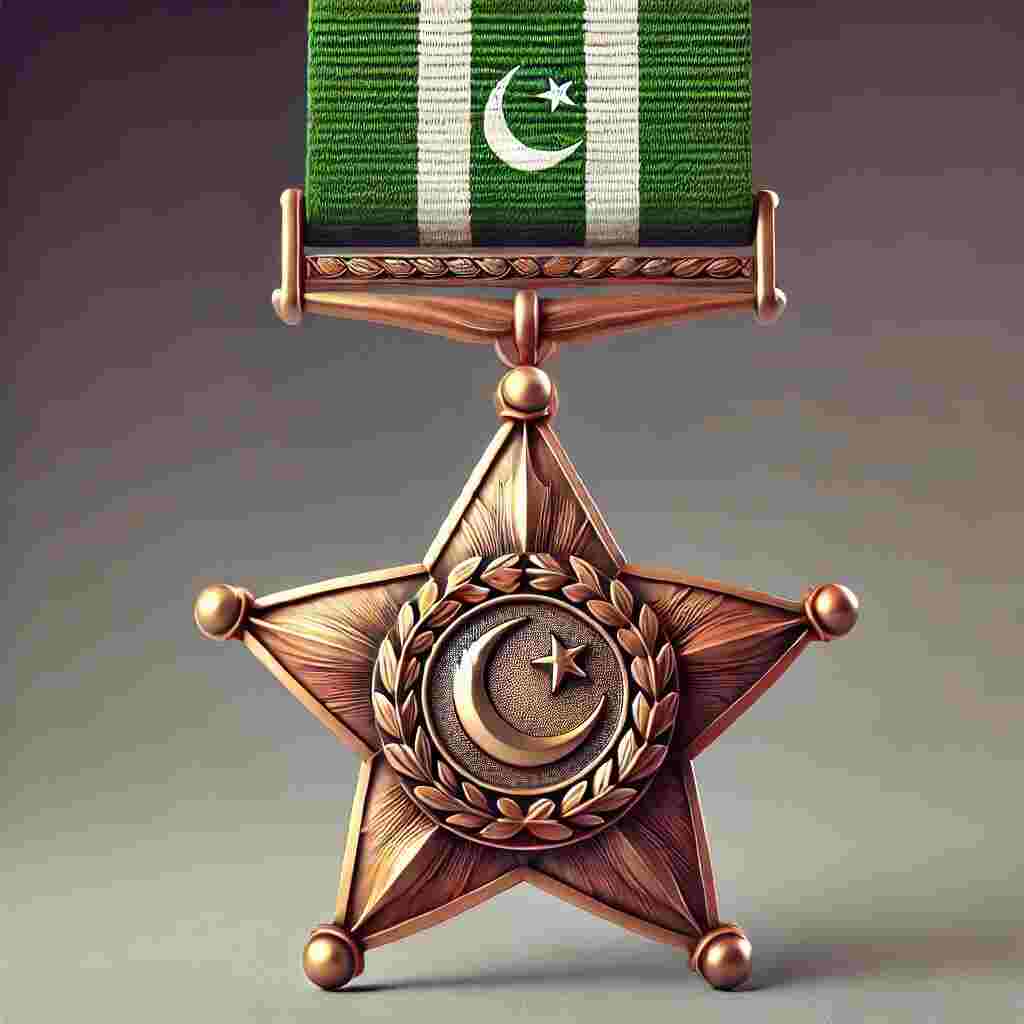
For his supreme sacrifice and extraordinary leadership, Major Raja Aziz Bhatti was awarded Pakistan’s highest military award, the (Nishan e Haider). He became the second recipient of this prestigious honor, joining an elite group of soldiers who exemplified the highest traditions of military service.
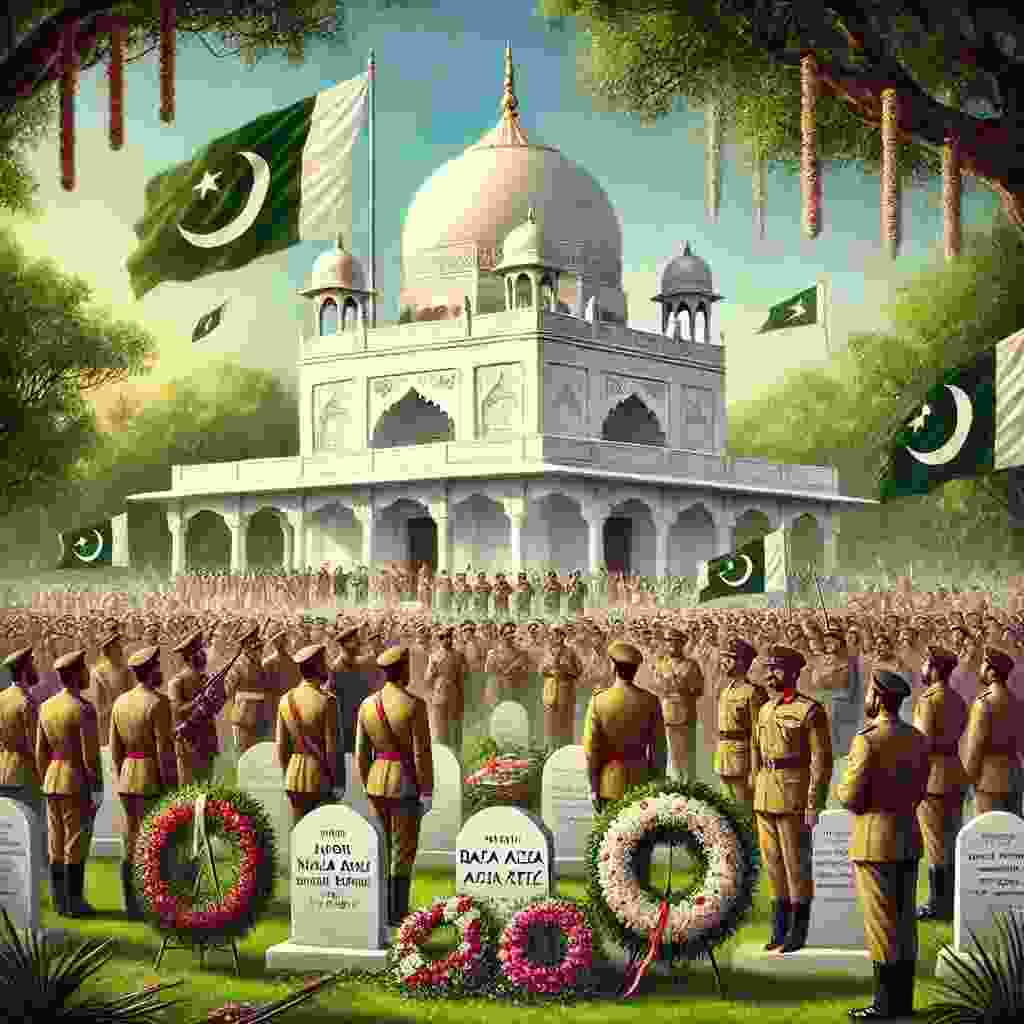
Today, numerous institutions bear his name, including Major Raja Aziz Bhatti (Shaheed College Ladian), Gujarat, and the Major Raja Aziz Bhatti Road in Lahore. Every year on September 10, the anniversary of his martyrdom, special ceremonies are held at his mausoleum in Ladian, where military and civilian leaders pay tribute to his memory.
Legacy and Inspiration for Future Generations
Major Bhatti’s legacy extends far beyond the medals and monuments that bear his name. His story is taught at military institutions across Pakistan as a case study in leadership, courage, and tactical excellence. The Pakistan Military Academy has a dedicated hall named after him, where cadets learn about his exemplary conduct during the 1965 war.
Several documentaries and books have chronicled his life, including (Defenders of Lahore) (2015) and “Heroes of Pakistan” (2018). These works help ensure that new generations understand the price of freedom and the value of selfless service to the nation.
Conclusion
Major Raja Aziz Bhatti Shaheed’s story reminds us that true heroism isn’t about seeking glory—it’s about unwavering commitment to duty and willingness to sacrifice everything for a greater cause. His legacy lives on not just in the annals of military history but in the spirit of every soldier who stands guard at Pakistan’s borders today.
As we reflect on his sacrifice, perhaps the most fitting tribute we can pay to Major Bhatti and others like him is to embody the values they died defending: courage, integrity, and devotion to duty. Their sacrifices ensure that we can live in peace, and their stories inspire us to build a nation worthy of their memory.
To learn more about Major Raja Aziz Bhatti and other heroes of the 1965 war, visitors are encouraged to visit the Army Museum in Lahore or the Major Raja Aziz Bhatti Shaheed Memorial in Ladian, Gujarat. These sites offer detailed insights into the life of this remarkable soldier and the crucial battle where he made the ultimate sacrifice for his nation.
More Information: Click Here

